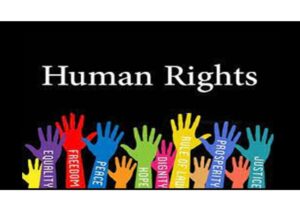Table of Contents
Introduction
Human rights are rights that we have simply because we exist as human beings. These are universal rights inherent to all of us, regardless of nationality, sex, national or ethnic origin, color, religion, language, or any other status. They range from the most fundamental, the right to life to those that make life worth living, such as the rights to food, education, work, health, and liberty.
HR includes civil and political rights, such as:
- The right to freedom of expression
- The right to freedom of religion or conscience
- The right to property
- The right to freedom of assembly
- The right to privacy
- The right to vote.
It also covers economic and social rights, such as:
- The right to an adequate standard of living
- The right to adequate food, housing, water, and sanitation
- The rights you have at Work
- The right to education. It belongs to everyone, everywhere, regardless of nationality, sexuality, gender, race, religion, or age.
World Human Rights Day is observed by the international community every year on 10th December. It commemorates the day in 1948 the United Nations (UN) General Assembly adopted the Universal Declaration of Human Rights (UDHR). UDHR is a part of the International Bill of Human Rights.
The Universal Declaration of Human Rights (UDHR) is the foundation and the 30 articles of the Declaration were adopted in 1948 by the United Nations General Assembly, and over time these have been integrated into national laws and international treaties. The core values of the UDHR – human dignity, fairness, equality, and non-discrimination – apply to everyone, everywhere
Provisions Related to Human Rights in India?
According to the National Human Right Commission of India, HR as the rights relating to life, liberty, equality, and dignity of the individual guaranteed by the Constitution or embodied in the International Covenants and enforceable by courts in India.

National Human Rights Commission
The National Human Rights Commission (NHRC) of India was established in 1993. The statute under which it is established is the Protection of Human Rights Act (PHRA), 1993. The Act provides for the establishment of State Human Rights Commissions.
Indian Constitution incorporated several provisions of HR in the Indian Constitution. Part III of Fundamental Rights from Article 14 to 32. Articles 14 to 18 of the Constitution guarantee the right to equality for every citizen of India. Article 19 deals with freedom of speech and expression and Article 21 provides the Right to life and liberty
Violation of fundamental human rights
- The citizens can move to the Supreme Court under Article 32 and High Courts under Article 226.
- Directive Principles of State Policy from Articles 36 to 51.
International Bill
In the second world war (1939-45), a series of declarations and covenants began to articulate universal human rights.
In 1948, for the first time, countries agreed on a comprehensive list of inalienable HR
In December of that year, the United Nations General Assembly adopted the Universal Declaration of Human Rights (UDHR), a milestone that would profoundly influence the development of international HR law.
30 articles of UDHR provide the principles and building blocks of current and future human rights conventions, treaties, and other legal instruments.
In December 1966, the UN General Assembly adopted two international treaties that would further shape international human rights:
The International Covenant on Economic Social and Cultural Rights (ICESCR) which is monitored by the Committee on Economic, Social, and Cultural Rights.
The International Covenant on Civil and Political Rights (ICCPR)- monitored by the Human Rights Committee.
These are often referred to as “The International Covenants”.
The UDHR and these two Covenants together are known as the International Bill of Human Rights.
Other Treaties Related to Human Rights
International Humanitarian Law (IHL) and international HR law are complementary bodies of international law that share some of the same aims.
International humanitarian law is a set of rules which seek, for humanitarian reasons, to limit the effects of armed conflict. It protects persons who are not or are no longer participating in the hostilities and restricts the means and methods of warfare. International humanitarian law is also known as the law of war or the law of armed conflict.
Convention on the Prevention and Punishment of the Crime of Genocide (1948)
Convention on the Elimination of All Forms of Racial Discrimination (1965)
Convention on the Elimination of All Forms of Discrimination against Women (1979)
Convention against Torture and Other Cruel, Inhuman or Degrading Treatment or Punishment (1984)
Convention on the Rights of the Child (1989)
International Convention on the Protection of the Rights of All Migrant Workers and Members of their Families (1999)
International Convention for the Protection of All Persons from Enforced Disappearance (2006)
Convention on the Rights of Persons with Disabilities (2006)
In 2011, the United Nations Human Rights Council (UNHRC) passed the Guiding Principles on Business and Human Rights (UNGPs).
MUST READ
WHAT ARE THE FUNDAMENTAL RIGHTS 2023-SHORT?
CULTURAL AND EDUCATIONAL RIGHTS ARTICLES 29 TO 31
RIGHT TO FREEDOM OF RELIGION ARTICLE-25 TO 28
THE CONSTITUTION OF INDIA – PART 1
CITIZENSHIP-PART 2 THE CONSTITUTION OF INDIA
FUNDAMENTAL RIGHTS-ARTICLE 14 TO 18 (PART 3)
